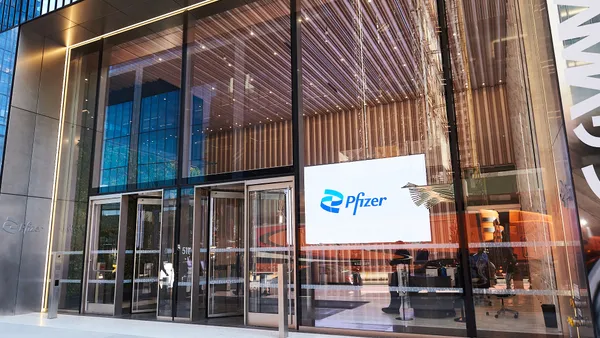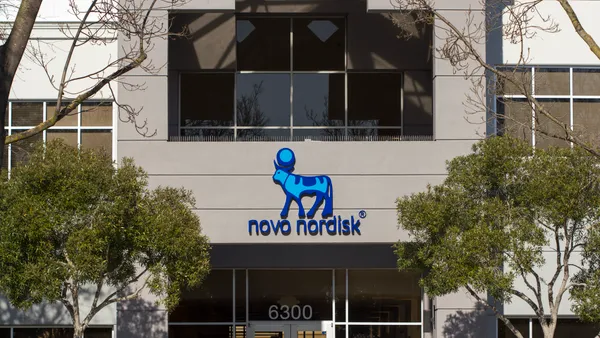Tablet PCs are changing the landscape of pharmaceutical marketing. They hold the promise of more flexible and dynamic detailing. Interactions may be more engaging than with paper and more convenient than with a laptop PC. According to Melanie Brown, VP, director of Tablet PC strategy, at Avenue-e Health Strategies, when it comes to pharmaceutical marketing, there may be nothing more innovative in a sales representative’s arsenal to animate a potential blockbuster’s novel mode of action (MOA) or highlight its long-term efficacy. The Tablet PC is a compact portable computer — three to four pounds — that allows users to write on the screen with a stylus, although they also convert for keyboard use. The newest version of Windows (Vista) has enhanced support for this platform, including greater usability and handwriting and voice recognition. “The software’s ability to capture what information is shared and the order in which it is presented — much the way a commercial jet’s flight data recorder logs performance parameters — ups the coolness factor,” Ms. Brown says. “Given that a sales rep’s average meeting time now clocks in at less than five minutes, an innovation slick enough to enliven a sales pitch, access scientific evidence, and capture a physician’s signature — all without a single sheet of paper — is understandably turning heads.” According to Ms. Brown, as a way to gauge attitudinal traction to the Tablet PC in the pharmaceutical marketplace, her company surveyed professionals across the pharmaceutical spectrum. Physicians Marketers know that because they have the power to prescribe, physician reaction to any technology is most important. “Of the 74 physicians surveyed, only 6% had a negative perception of the Tablet PC,” Ms. Brown says. “The majority said tablet details were credible. They were influenced by the tablet’s ‘wow’ factor. Most physicians agreed that MOA diagrams and key opinion leader (KOL) and patient videos worked well on the tablet. In fact, 92% of physicians speculated that tablet detailing results in equal or more face time with sales representatives versus traditional detailing methods and 94% believe that tablet details result in equal or higher detail value.” Physician responses indicated that tablet detailing is clear, organized, flexible, and interactive. A sales rep’s ability to address specific concerns, use time effectively, and detail professionally were all viewed equally or better than paper details. “Still, technical glitches when signing for samples, screen readability, and increased presentation time remain as concerns,” she says. “But physicians’ wish lists read similarly with what they’ve wanted for years — and well before the Tablet PC’s introduction — which is comparative data, patient assistance, case studies, and price comparisons.” Product Managers Of the 110 product managers surveyed, almost half already have used Tablet PCs for detailing. Pilot projects have historically paved the way for larger pharmaceutical company-based initiatives, and the Tablet PC is no exception. According to the survey results, 53% of project managers have executed pilot projects in the past year, on average, with 100 sales representatives. Of those pilot programs completed, only 20% were considered unsuccessful. “Product managers understand the Tablet PC’s potential,” Ms. Brown says. “Even in the Tablet PC’s infancy, four out of five project managers now believe that tablet detailing improves a prescribing physician’s perception of their sales organization and increases a sales rep’s product expertise. And percentages speak volumes: 82% of product managers view Tablet PCs as positively impacting consistent message delivery and 52% believe they lengthen physician face time — both key performance indicators that point to increased sales.” Ms. Brown adds that product managers exhibited a glass-half-full attitude about garnering salesforce support, too. Product managers reported enthusiastic results with sales training, rep acceptance, implementation, and resource use. Yet, product managers agreed that more help is needed to overcome time and resource challenges when launching tablet-based initiatives. Sales rep training, updating content, and managing costs are all significant issues that need to be considered when transitioning from paper-based tactics. Sales Representatives “Of the 70 sales reps we talked with, 70% described Tablet PC detail credibility as equal to traditional paper details,” Ms. Brown says. “They indicated they even prefer the convenience and organization of the Tablet PC. And reps, like product managers, recognize its ability to deliver sharp, professional presentations.” In contrast to product managers, however, Ms. Brown says more than half of the sales reps thought that Tablet PCs reduced detail time. They also questioned the tablet’s role as a conversation starter. This concern is of importance given the sales reps’ already narrow detail window. “Pharmaceutical sales reps cited that tablets are inappropriate for short calls: 67% rated this type of exchange a one or two on a 10-point scale,” she says. “And a subset of reps are not yet comfortable with the tablet for details of any length. Clearly, there is a need for a major change in the sales rep’s daily activity that requires more support, training, and follow-up.” Frequently expressing dissatisfaction with hardware and software challenges, sales reps want greater presentation-making flexibility. In fact, fewer than 40% of those interviewed indicated that their tablet detail content was customizable by any criterion listed — by specialty, competitive product usage, current product usage, or objection. “It seems that many advertising agencies have not taken advantage of the full scope of the tablet’s capabilities,” Ms. Brown says. On training, pharma sales reps painted a less-than-rosy picture: 38% rated Tablet PC detail training as only “fair” or “insufficient.” “This makes sense because tablet training is reportedly short, usually a day or less,” she says. “When considering the amount of time that is dedicated to training sales reps with a new paper detail aid, it’s surprising that more time isn’t given to such an important initiative.” The Outlook Although any new system will have its critics, it’s promising that Tablet PCs are already well liked by product managers and physicians. Sales reps may need to hear just how well Tablet PCs are liked by physicians and product managers to more fully embrace the tablet’s potential. As with any selling opportunity, comfort and confidence start with training. E-strategic and tablet-savvy advertising agencies are well-positioned to help brand teams implement fully integrated, tablet-based marketing strategies. Smart communications companies and advertising agencies can act as the conduit between brand managers and pharma sales reps to help both sides understand the data, refine messages, and improve presentation flow in a closed continuous quality improvement loop (see diagram on this page). “Data can be retrieved in near real time, so decisions can be made quickly and in response to specific audience needs,” Ms. Brown says. “This information allows brand teams and their e-strategic partners to segment and direct messaging for greater impact with physicians. With executive sponsorship setting the tone, we have little doubt that reps will realize the benefits of a technological advance that helps deliver more customized, accessible, and organized presentations.” PharmaVOICE welcomes comments about this article. E-mail us at [email protected]. Melanie Brown is VP, Director of Tablet PC Strategy, Avenue-e Health Strategies, a Sudler & Hennessey Co., New York; Avenue-e provides Internet communications consulting, technology, and digital media to the healthcare industry, primarily pharmaceutical and biotechnology companies. Tablet PCs are changing the landscape of pharmaceutical marketing. They hold the promise of more flexible and dynamic detailing. Interactions may be more engaging than with paper and more convenient than with a laptop PC. of physicians believe that tablet details result in equal or higher detail value. of physicians propose that tablet detailing results in equal or more face time with reps vs. traditional detailing methods. of product managers view Tablet PCs as positively impacting consistent message delivery. of product managers have executed pilot Tablet PC projects in the past year. of product managers believe Tablet PCs lengthen physician face time . Note: Results based on survey of 74 physicians and 110 product managers. continuous quality improvement loop
An article from


Tablets That Sell Tablets
Filed Under:
Commercialization








